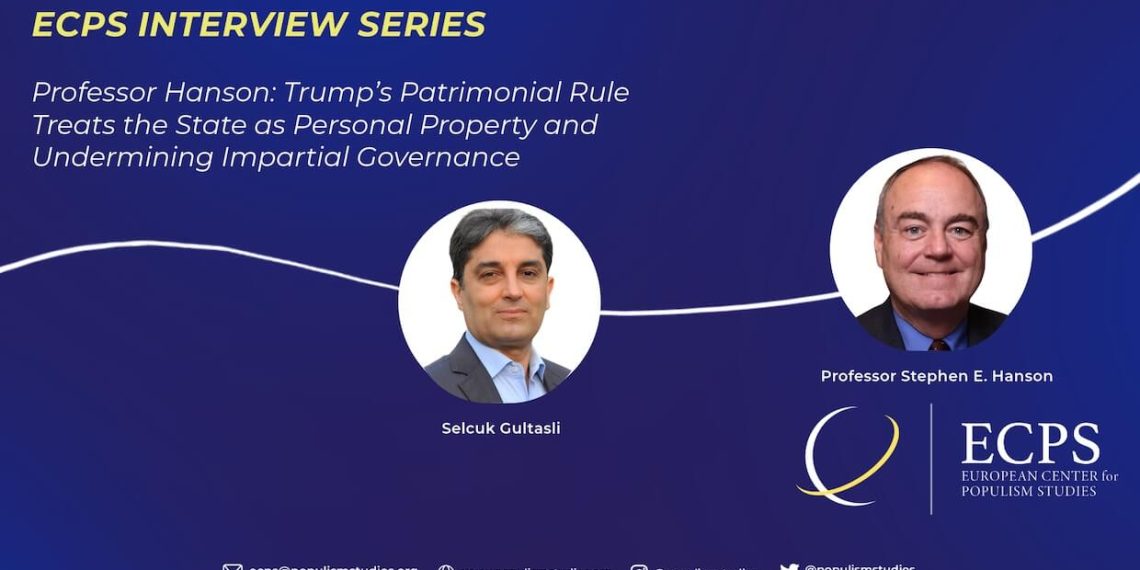In a thought-provoking interview with the ECPS, Professor Stephen E. Hanson unpacks how US President Donald Trump exemplifies a growing global trend of patrimonial rule. Professor Hanson argues that Trump governs as if the state was his personal property—distributing power to loyalists, undermining impartial governance, and attacking state institutions. Drawing comparisons to Russia, Hungary, and Brazil, he warns of long-term damage to democratic institutions. Professor Hanson stresses the need for renewed public trust in government and a collective effort to counteract the erosion of modern governance.
Interview by Selcuk Gultasli
In an in-depth interview with the European Center for Populism Studies (ECPS), Professor Stephen E. Hanson, the Lettie Pate Evans Professor in the Department of Government at William & Mary University, offers a compelling analysis of the erosion of modern governance under US President Donald Trump. Drawing on his co-authored works The Global Patrimonial Wave and The Assault on the State, Professor Hanson argues that Trump’s presidency exemplifies a broader 21st-century resurgence of patrimonial rule—a system in which leaders govern as if the state were their personal property.
Professor Hanson underscores that “the key features [of Trump’s governance] are that the ruler governs the entire state as if it were his personal possession, viewing the state as a kind of family business. He distributes parts of the state and its protection to loyalists, cronies, and even family members directly. At the same time, he attacks the impersonal and impartial administration of the state as an obstacle to his arbitrary power.” This, he argues, is a defining characteristic of patrimonialism, a governance style that many assumed had been relegated to history but is now re-emerging in modern democracies.
Through the course of the interview, Professor Hanson details how Trump’s administration actively worked to dismantle bureaucratic institutions, a trend he links to similar developments in Russia, Hungary, Turkey and Brazil. He explains that Trump’s refusal to accept the 2020 election results—mirroring tactics used by patrimonial rulers—posed unprecedented risks to American democracy, undermining public trust in institutions like the electoral system and the judiciary.
Professor Hanson also addresses the long-term consequences of Trump’s governance, particularly in how it has fueled distrust in expertise and weakened state capacity. He describes how, under Trump, public service was increasingly devalued, discouraging young professionals from pursuing government careers. “At this moment, no one in their right mind would join the federal government—massive layoffs are happening, and every office is being downsized,” he warns, emphasizing that rebuilding state institutions will be a daunting, long-term challenge.
Yet, Professor Hanson remains hopeful, advocating for a reassertion of the state as a force for public good. He stresses the need for new strategies to counteract patrimonialism, urging scholars, policymakers, and civil society to shift the discourse toward defending democratic governance. His insights offer a sobering but essential perspective on the ongoing assault on the modern state—and what can be done to reverse it.


